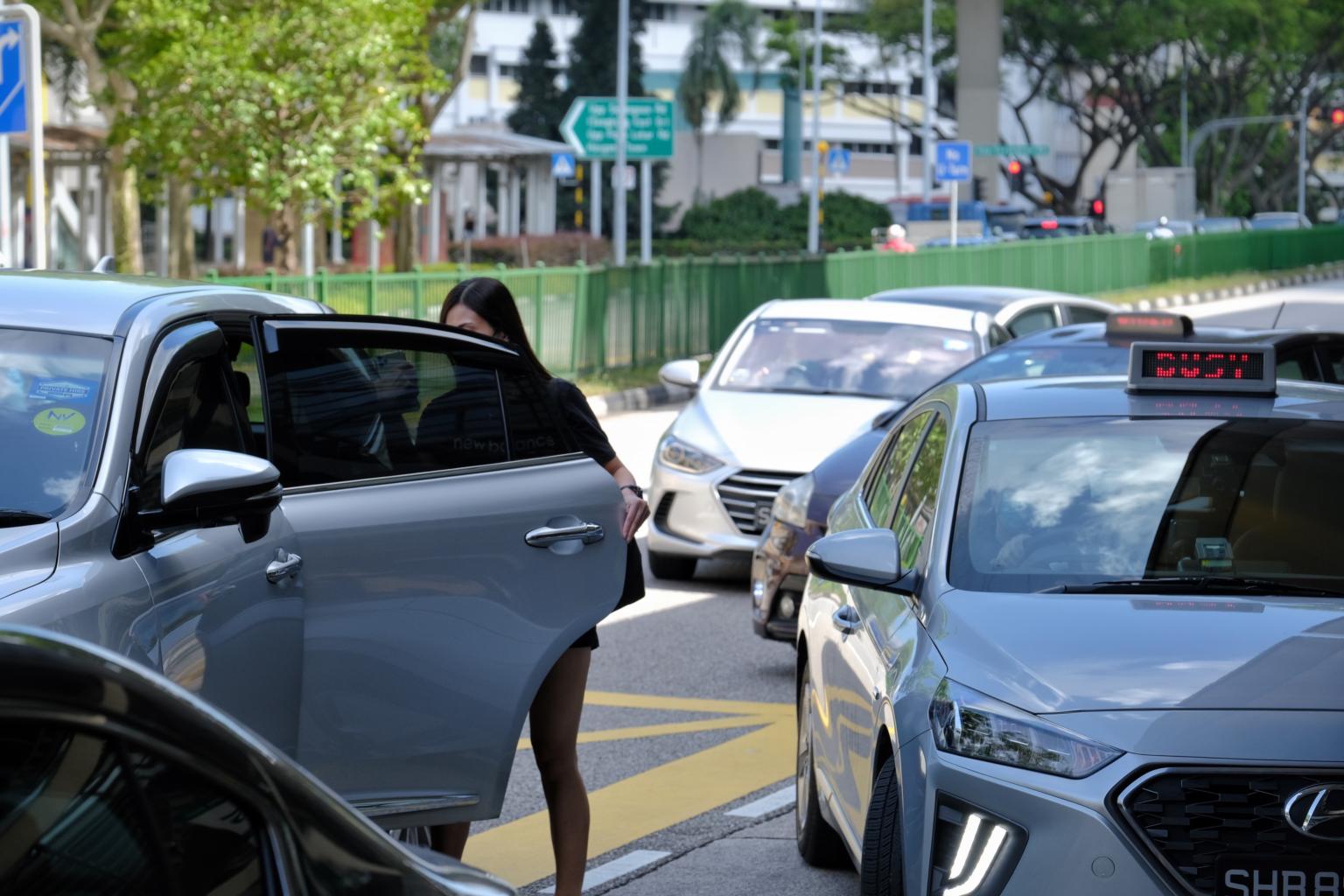Students, housewives and retirees are less satisfied with taxis and private-hire cars: Study
Sign up now: Get ST's newsletters delivered to your inbox

The level of satisfaction among the non-working commuters for taxis and private-hire cars fell 5.8 per cent from 2021.
ST PHOTO: THADDEUS ANG
Follow topic:
SINGAPORE - Students, housewives, retirees and the unemployed are significantly less satisfied with using taxis and private-hire services to get around in 2022 than they were in 2021.
But public buses and the MRT managed to maintain their customer satisfaction score at 2021 levels.
These are among the research findings from the 2022 Customer Satisfaction Index of Singapore published by the Institute of Service Excellence (ISE) at Singapore Management University. The findings focused on the land transport sector, which comprises the MRT and public buses as well as taxis and private-hire cars.
This is part of a larger annual study that started in 2007 which covers various industry sectors.
Online interviews were conducted with 2,350 local residents between April and July 2022.
The level of satisfaction among the non-working commuters for taxis and private-hire cars fell from 76.5 points in 2021 to 72.1 points – a decrease of 5.8 per cent. These are respondents who do not have any form of employment.
When the responses from those who are working were included, the overall score for taxis and private-hire cars is marginally better than in 2021 – by 0.4 per cent.
Respondents who are not employed gave comparatively lower scores than those who are working, especially when it comes to the perception of value relating to using taxis and private-hire cars.
Those not working also gave significantly poorer scores than employed respondents when it comes to their level of satisfaction with the "ease of getting a ride" and "waiting for a ride".
Ms Neeta Lachmandas, executive director of ISE, said the scoring for taxis and private-hire cars would have been affected by the smaller number of such vehicles on the road and the higher fees charged by the operators.
She added that those who are not working "presumably have a smaller tolerance for such discretionary spending".
The survey period coincided with rising demand for land transport that came with the lifting of pandemic-related restrictions on group sizes and work arrangements.
Public buses and the MRT achieved similar scores as in 2021.
As at the last week of April 2022, it was reported that MRT and bus ridership hit 78 per cent of pre-Covid-19 levels. This was up by more than 10 percentage points from what it was in January.
From the responses, the study found that the frequency of the services is among the top three drivers of commuters' perception for both the MRT and public buses.
Other key concerns include cleanliness, ride comfort for the MRT, while public bus users rate ease of boarding and moving within the buses highly.
In addition, the study found that fewer people are working from home in 2022 than in 2021. The majority have indicated that they will return to the workplace in the next 12 months, suggesting that there will be even more demand for land transport.
Among the bus and MRT commuters polled, 38.4 per cent said they expect to take more rides; 6.7 per cent indicated that they are expecting to take fewer rides.
Ms Lachmandas said based on the findings, transport operators may wish to start calibrating their infrastructure and services to meet the anticipated resurgence in demand.

